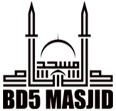Praise be to Allaah.
Among the special seasons of worship are the first ten days of Dhul-Hijjah, which Allaah has preferred over all the other days of the year. Ibn Abbaas (may Allaah be pleased with him and his father) reported that the Prophet (peace and blessings of Allaah be upon him) said: "There are no days in which righteous deeds are more beloved to Allaah than these ten days." The people asked, "Not even jihaad for the sake of Allaah?" He said, "Not even jihaad for the sake of Allaah, except in the case of a man who went out to fight giving himself and his wealth up for the cause, and came back with nothing." (Reported by al-Bukhaari, 2/457).
It was narrated from Hunaydah ibn Khaalid from his wife that one of the wives of the Prophet (peace and blessings of Allaah be upon him) said: The Messenger of Allaah (peace and blessings of Allaah be upon him) used to fast nine days of Dhu’l-Hijjah and the day of Ashoora and three days of each month, the first Monday and two Thursdays.†Narrated by Imam Ahmad, 21829; Abu Dawood, 2437; classed as daeef in Nasab al-Raayah, 2/180, but classed as saheeh by al-Albaani.
With regard to fasting on the day of Eid, this is haraam, as is indicated by the marfoo hadeeth of Abu Saeed al-Khudri (may Allaah be pleased with him): “He [the Prophet (peace and blessings of Allaah be upon him)] forbade fasting on the day of (Eid) al-Fitr and the day of al-Nahr (the day of sacrifice, i.e., Eid al-Adha). Narrated by al-Bukhaari, no. 1992; Muslim, 827. The scholars are unanimously agreed that it is haraam to fast on these days.
The Prophet (peace and blessings of Allaah be upon him) encouraged people to do righteous deeds because of the virtue of this season for people throughout the world, and also because of the virtue of the place - for the Hujjaaj (pilgrims) to the Sacred House of Allaah.
The Prophet (peace and blessings of Allaah be upon him) commanded to recite a lot of Tasbeeh ("Subhan-Allaah"), Tahmeed ("Al-hamdu Lillaah") and Takbeer ("Allaahu akbar") during this time. ‘Abdullaah ibn ‘Umar (may Allaah be pleased with him and his father) reported that the Prophet (peace and blessings of Allaah be upon him) said: "There are no days greater in the sight of Allaah and in which righteous deeds are more beloved to Him than these ten days, so during this time recite a great deal of Tahleel ("La ilaaha ill-Allaah"), Takbeer and Tahmeed." (Reported by Ahmad, 7/224; Ahmad Shaakir stated that it is saheeh).
These ten days include Yawm ‘Arafaah (the Day of Arafaah), on which Allaah perfected His Religion. Fasting on this day will expiate for the sins of two years. These days also include Yawm al-Nahar (the Day of Sacrifice), the greatest day of the entire year and the greatest day of Hajj, which combines acts of worship in a way unlike any other day.
These ten days include the days of sacrifice and of Hajj.
The Sunnah indicates that the one who wants to offer a sacrifice must stop cutting his hair and nails and removing anything from his skin, from the beginning of the ten days until after he has offered his sacrifice, because the Prophet (peace and blessings of Allaah be upon him) said: "When you see the new moon of Dhu’l-Hijjah, if any one of you wants to offer a sacrifice, then he should stop cutting his hair and nails until he has offered his sacrifice." According to another report he said: "He should not remove (literally, touch) anything from his hair or skin." (reported by Muslim with four isnaads, 13/146)
The wisdom behind this prohibition of the one who wants to offer a sacrifice from cutting his hair etc., is so that he may resemble those in ihraam in some aspects of the rituals performed, and so that he may draw closer to Allaah by offering the sacrifice. So he leaves his hair and nails alone until the time when he has offered his sacrifice, in the hope that Allaah will save him in his entirety from the Fire. And Allaah knows best.
Sincere repentance. One of the most important things to do during these ten days is to repent sincerely to Allaah and to give up all kinds of disobedience and sin. Repentance means coming back to Allaah and foregoing all the deeds, open and secret, that He dislikes, out of regret for what has passed, giving it up immediately and being determined never to return to it, but to adhere firmly to the Truth by doing what Allaah loves.
None has the right to be worshipped except Allaah, Muhammad (PBUH) is the messenger of Allaah
Urgent Masjid Construction Appeal
Please donate generously
Name:Madrassah Salfia SC:05-03-38 | Acc:63642951
Or Pay us via "Just Giving Page"

